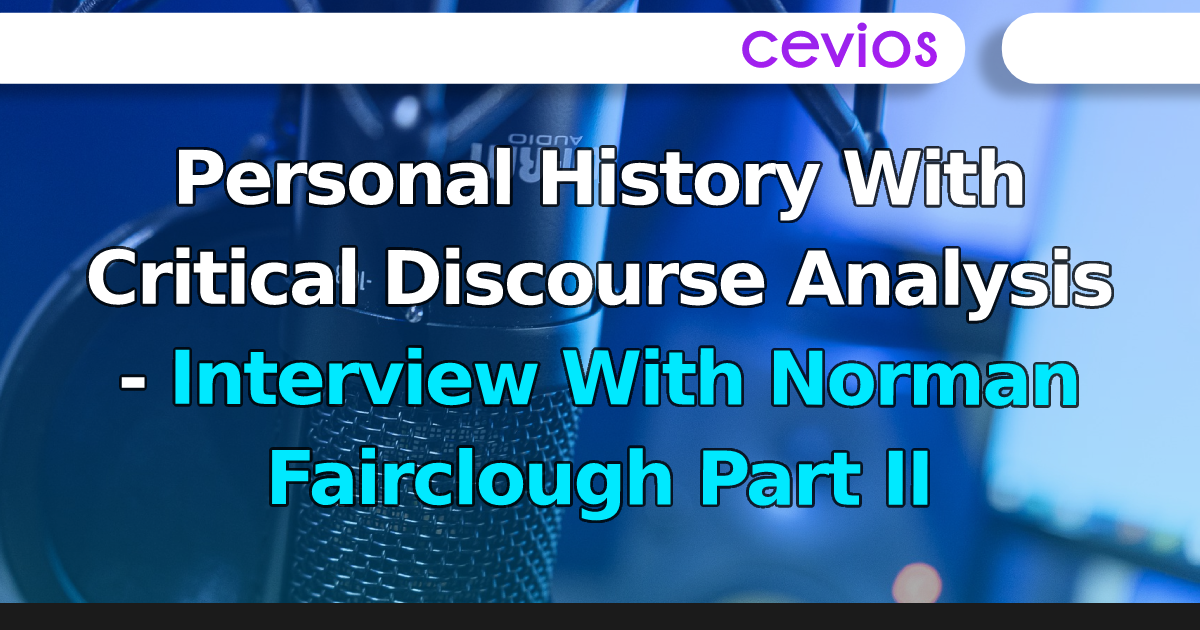Personal History With Critical Discourse Analysis – Interview With Norman Fairclough Part II
Rebecca Rogers: Can you talk through why you thought to bring together these ideas?
Norman Fairclough: I started in linguistics, the appointment that I first had at Lancaster was a very strange one in a sense because I was appointed to teach varieties of English and writing systems and was forgotten about as soon as I got there and thank God because I didn’t know anything about writing systems. I started off doing that and teaching formal linguistics. I taught Chomskyan grammar and so on.
Then I got quite involved politically in the 1970s and gradually became dissatisfied with the gross gap between my political interests and my academic ones. So I gradually moved first towards social linguistics and then came across—I can’t remember in which order—the critical linguistics work of the late 1970s and also very important Voloshinov and the Marxist Philosophy of Language.
And so it emerged out of that. And I suppose I started putting this together in the 1980s. So for me it was very much a matter of trying to develop some academic work that was a way of developing my political commitments in academic terms.
RR: And what was your first project?
NF: My first project in a sense was to try to work out some of these ideas in a very theoretical way. So I wrote some papers in the mid-1980s—I wrote a paper on critically descriptive approaches to discourse analysis—that was published in Discourse & Society in 1985. That was probably my first significant publication.
Actually, I did some early work on the Falklands War with an Argentinean student who was working with me in those days. And then the first book was Language and Power which was published in 1989.
Again, the concern was to develop a synthetic theoretical approach to language and power and it was applied to many different materials. It wasn’t a project on any particular research problem. It was an attempt to develop a particular approach to questions of language and power, across a range of media, interviews, doctor-patient interview materials, there might have been some educational material, I can’t remember. But it was quite a diverse discussion.
RR: How was your work received in 1985?
NF: How was it received?
RR: Yeah.
NF: Very generously (laughs). In what sense?
RR: I don’t know who the editor was then?
NF: Teun van Dijk. Teun van Dijk was already oriented towards these ideas so it was not alien to him then. Because I guess his own work, I am not sure of the timetable of his work, his orientation towards this work must have already been developing.
Citation
Rogers, R. (2004, May). [Interview with Norman Fairclough.] In Companion Website to R. Rogers (Ed.) An Introduction to Critical Discourse Analysis in Education (second edition). New York: Routledge. [http://cw.routledge.com/textbooks/9780415874298]

